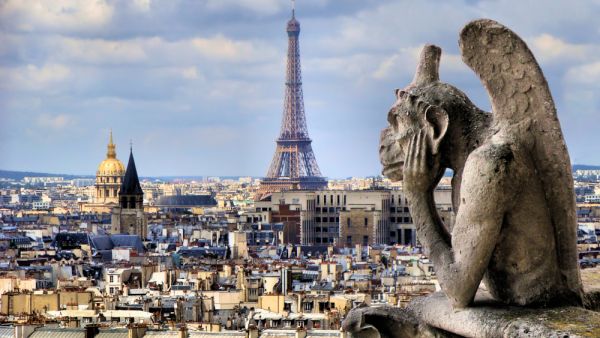Paris is expanding its car-free zones to include most of the city-centre, in a move to combat air pollution and open up more space to pedestrians.
Cars will be banned in 1st, 2nd, 3rd and 4th arrondissements for the first Sunday of every month, beginning this weekend on October 7.
The French capital, which already holds an annual car-free day, is the most polluted city in Western Europe, according to Numbeo. Out of Europe as a whole, it ranks 13th, while London was 25th.
A study released in May by the Wuppertal Institute in Germany found that Paris is lagging far behind its rival European capitals in terms of air quality. Of the 13 major cities surveyed, only Moscow's air was more polluted.
The new measure, which will be enforced between 10am and 6pm, gives pedestrians and people on scooters or bikes full run of the roads.
Some exceptions will be made for delivery vans, taxis, local residents and carers, but they will have to come and go via designated access points and obey a 20km/h speed limit.
The city mayor, Anne Hidalgo, is spearheading the Paris Respire (Paris breathes) campaign to clean up the air in the French capital, where car-bans are already enforced in certain, highly polluted areas.
Mayor Hidalgo, a member of the Socialist Party, said: 'This measure, eagerly awaited by the inhabitants, is the fruit of an important partnership between the prefecture of police, mayors of the district and neighbourhood associations.'
Christophe Najdovski, deputy mayor of Paris, added: 'It will cover most of the streets, with the exception of major roads such as Boulevard Sébastopol, which will remain open to traffic.'
Hidalgo has long been an advocate of cleaner air solutions and believes the best way to boost air quality is simply to reduce the number of cars on Paris's streets.
In March, she announced she would commission a study into free city-wide public transport and is currently pushing to create new, safer bike lanes.
'To improve public transport we should not only make it more extensive, more regular and more comfortable, we must also rethink the fares system,' she said at the time.
Hidalgo is also the chair of C40 Cities - a global group of cities who have joined forces to measure emissions and committed to finding new ways to reduce them.
Last year, it was announced that a ban on diesel vehicles, which produce more toxic fumes than petrol motors, will come into effect in 2024 - the year Paris will host the summer Olympic games.
Individuals were offered up to €6,000 in subsidies to swap their diesel cars for cleaner models.
Paris's push for more car-free travel has resulted in a 6% fall in inner-city traffic so far in 2018 compared to the same time in 2017, as well as a reduction in air pollution.
The trend does go back further than Hidalgo's tenure, however. Vehicle use in Paris has fallen by almost half (45%) since 1990, according to France 24.
This article has been adapted from its original source.








